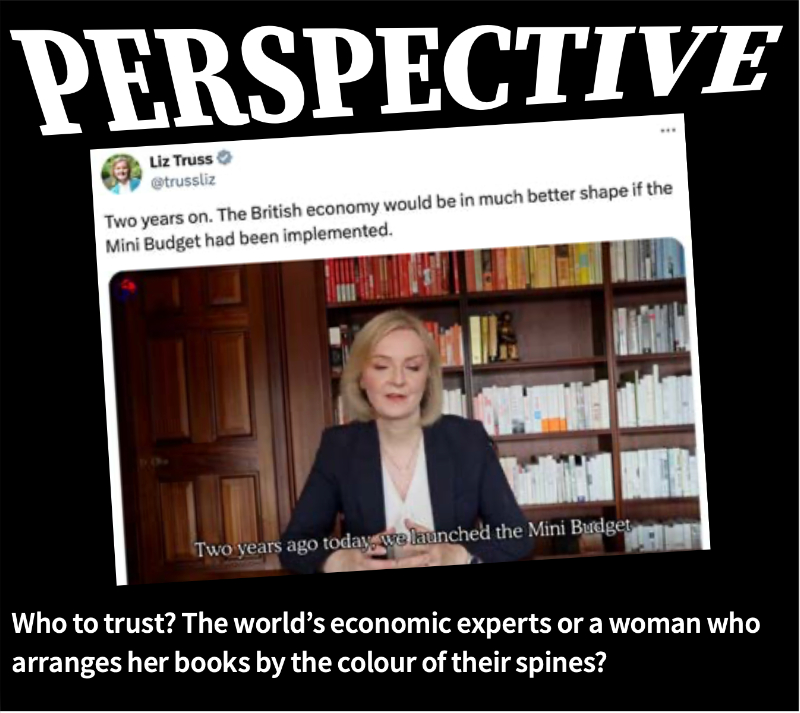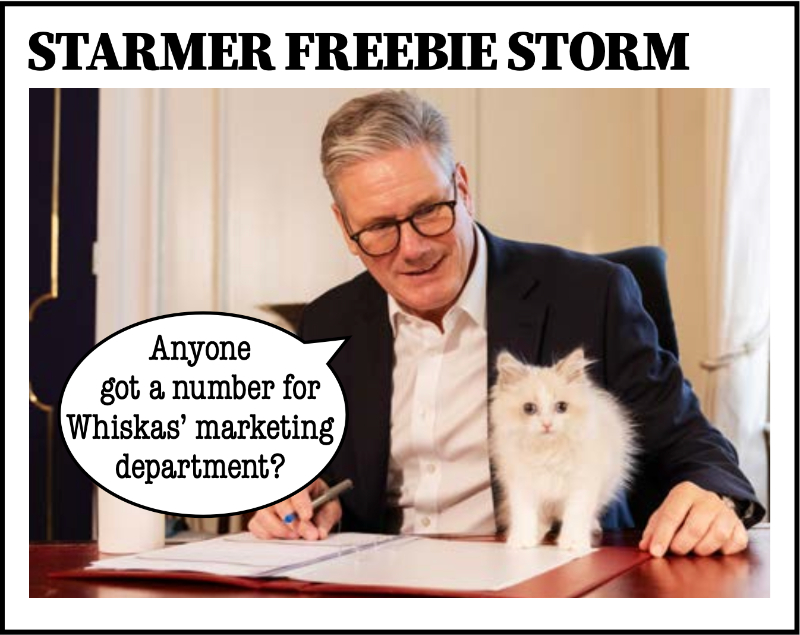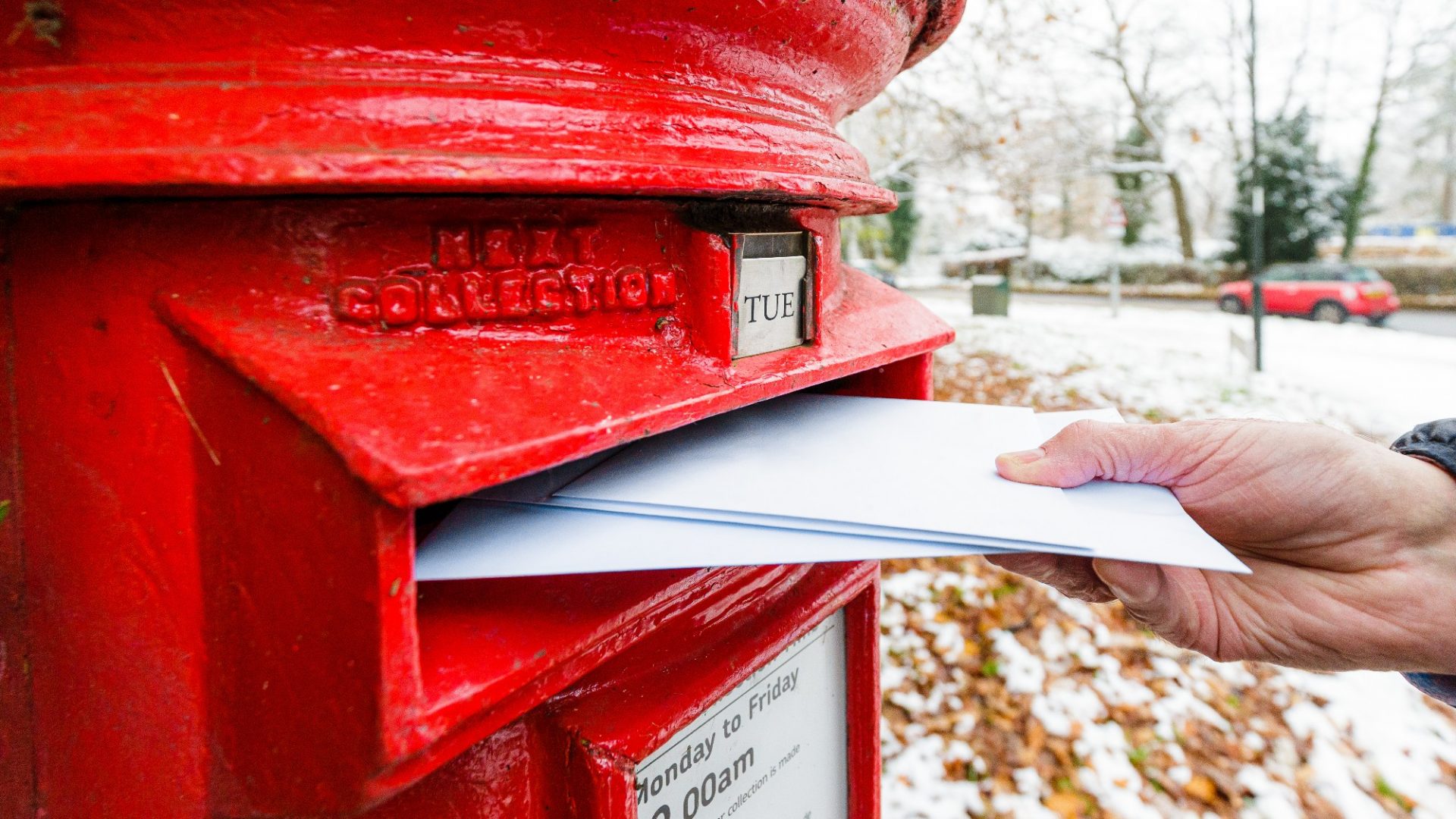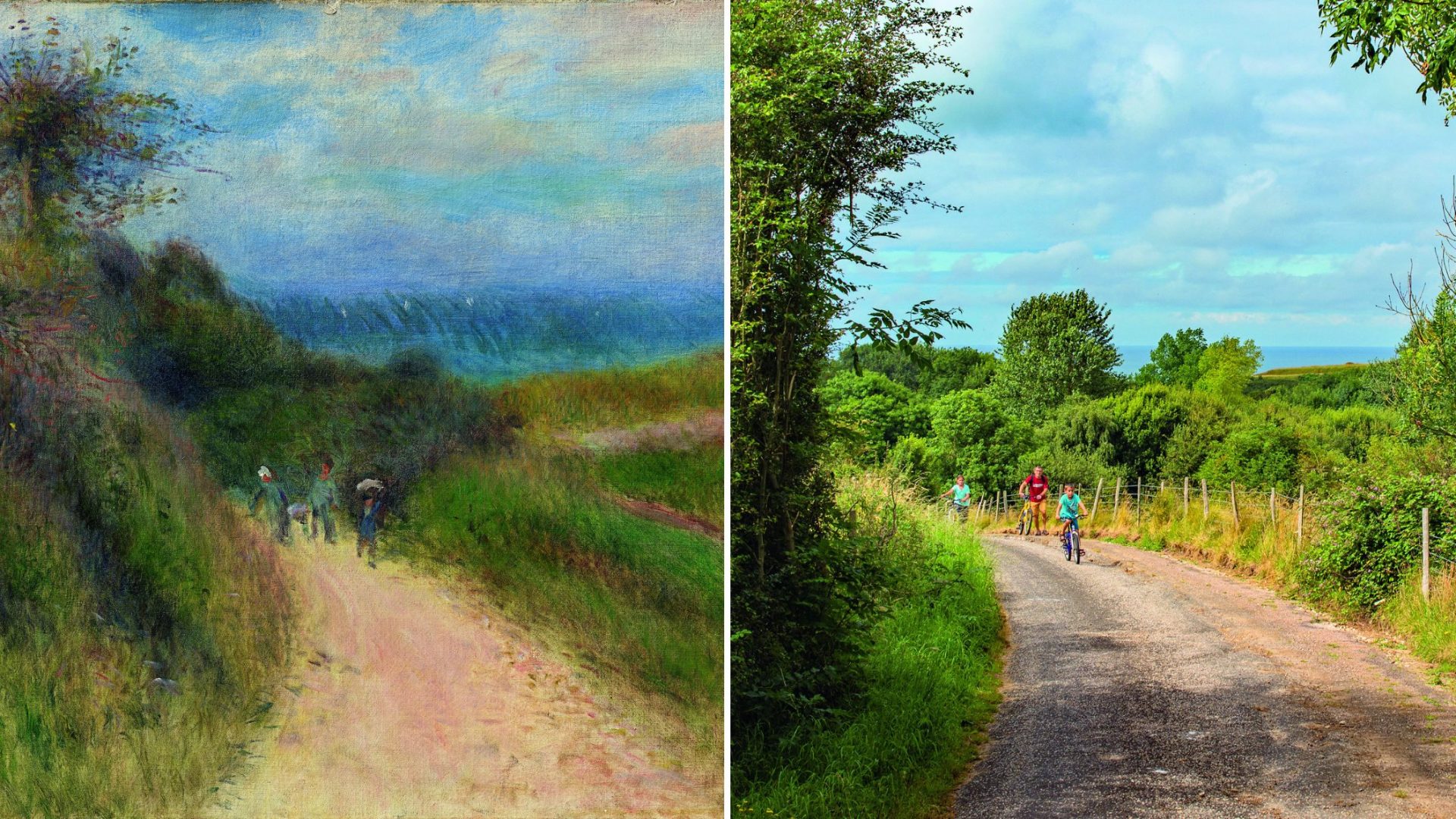James Ball’s excellent “Starmer’s missed opportunity” (TNE #405) decries the absence of any proper thinking around the removal of winter fuel allowance for all but very poor pensioners. Amid the hand-wringing and cries of outrage from those who cheerfully told us we were “economically inactive” (Priti Patel) and should be picking fruit and veg to earn our pensions (the 16th lowest in Europe), nobody seems to have realised that we are also going to be deprived of yet another pleasure in our declining years: Christmas cards.
Many pensioners enjoy sending, and in turn receiving, these over the festive season. Nothing brightens one’s living room on a drear winter afternoon than a display of cards featuring jolly robins, deer stranded in sparkly snow, or men of Middle Eastern origin carrying products that they’d never get through customs today.
Alas, the double whammy of both losing our winter fuel allowance and the big hike in first-class post means we will not only send, but also receive, far fewer cards. We feel particularly aggrieved about this, as we were hoping to warm our freezing fingers by setting light to them after the festivities.
Mr Ball writes of Labour that “this decision… will return to haunt them”. It might not be just the decision!
Carol Hedges
Talking of Keir Starmer and missed opportunities, as James Ball did in TNE #405, sometimes a solid case study is an effective way to back up opinions. For example: is there really “no argument” for rejoining the single market and customs union, as the prime minister seems to believe?
Perhaps this story will help our new national leaders to think more clearly about this matter. On the Plymouth-Santander ferry recently we chatted to a couple who were taking their daughter to Portugal. We’ll call her Sarah. She is going to study at one of Portugal’s university cities.
A few years ago, this would have been a straightforward matter, with Sarah being treated no differently to any student from the EU studying in Britain, or any British student studying in any of the then 28 nation-states of the EU.
Sarah, however, has had to follow the following procedure…
1) Travel to Scotland from her home in England to visit the Portuguese consulate in Edinburgh.
2) Pay £900 for a visa.
3) Show proof that she has £5,000 in her bank account (her dad had to empty his savings to achieve this).
4) Give full details of the date, place of birth, and nationality of both parents.
5) Produce a letter from a solicitor verifying all the details given.
Even Sarah’s gran, who admits she voted Leave, now says she certainly sees an argument for Britain rejoining the EU. She has sought some atonement by contributing £200 to Sarah’s additional and unnecessary costs, but she admits this is no real substitute for the freedom of movement we all used to enjoy.
Dr Charles Smith
Chair, Wales for Europe

Power politics
I enjoyed Roger Domeneghetti’s “A fistful of pasta” (TNE #405) on the political undertones of many Italian westerns of the 1960s, from fables of third-world armed struggle to the depraved blackshirt bad guys in Django Kill. But one political western that’s often overlooked is Tonino Valerii’s The Price of Power.
Made only six years after the Kennedy assassination, this restages that event and its aftermath in a post-civil war setting in order to make all kinds of pertinent points about political corruption and racial prejudice – something no American film-maker would have dreamed of doing.
Despite its flaws, it fully deserves being described by critics as “extraordinary” and “amazing”. Nowadays, some aspects of it might even be called “woke”.
John Pritchard
Basingstoke, Hampshire
Rising to the challenge
In “The biggest challenge” (TNE #405), Jonty Bloom repeats Rachel Reeves’s anxieties about the national debt. I have a confession. I own part of the national debt. Not a big part, but a bit.
I put some of my savings into Premium Bonds, because I know that the government will always give me my money back if I need it. But over 20 odd years, I have never wanted to take my money out. And from time to time they pay me a prize (or “interest”).
The same is true for much bigger savers like pension funds. We know our money is safe. We are happy to see its value creep up a bit ahead of inflation as the interest is reinvested, and we understand that the money is being used to provide services we all need.
So the last thing we want is for them to pay off the debt, and give us our money back. What would we do with it that would be as safe, or used for more worthwhile things? Yes, the government has to pay us interest, but is the 8% of public expenditure that it costs really disproportionate for the benefits?
If they paid a bit more, I would be happy to lend them more. And we know our public services need it.
Stephen McNair
Coltishall, Norfolk
Re: “The biggest challenge”. The problems with Britain’s finances need imaginative solutions.
If we are concerned about a declining birth rate, the government policy of limiting child allowance to two children has to go.
Investment in new technologies will bring the economic growth that Labour seeks. The climate challenge is being nobly addressed by Maersk and Siemens in Denmark, creating green methane by adding green hydrogen to CO2 from the atmosphere. Now the entire Maersk merchant fleet is powered by carbon-neutral green methane.
And, of course, joining the European single market and customs union would give a huge boost to the economy.
David Hogg
North Somerset
Dirty slate
I’m a fan of Alastair Campbell and generally agree with what he said about Labour and the Tories in his Diary (TNE #405). But with a clean slate and all kinds of levers for a new government to pull and push, why go for the pensioners, rather than billionaires and price-gouging energy companies? It just leaves me feeling rubbish.
Kevin Edwards
Starmer’s view is that a great deal can be achieved in relations with Europe without the interminable wrangle of accession negotiations. Apart from anything else, the UK might well have to wait its turn behind numerous other applicants.
Much wiser to go for the low-hanging fruit as Starmer is doing. We will get a much better deal if we wait until the EU sees us as a trustworthy new member. It will take time to erase the painful memory of Boris Johnson and David Frost, plus the other snake-oil salesmen like Nigel Farage.
Robert Graham
Alastair Campbell dealt with electoral reform rather perfunctorily in his Diary in TNE #404. The electoral processes and, more importantly, the constitutions of the three countries he compares are different. France and Germany actually have constitutions, associated citizens’ rights and constitutionally powerful local government. The UK, does not.
The UK needs constitutional reform and Mr Campbell blowing hot and cold on proportional representation trivialises the issue. The current situation suits the small cliques that run the Conservative and Labour parties because each gets spells in (constitutionally, largely unhindered) power and the baubles of the House of Lords and the vanities of knighthoods and damehoods.
Alasdair Macdonald
Glasgow G20
In defence of Keir
Every time over the past few days when I’ve returned to finessing this letter in reply to Tom Wilson’s in TNE #404, Keir Starmer seemed to do or announce something to undermine my defence of him in comparison with Jeremy Corbyn. Nevertheless, I’m still prepared to argue that watered-down socialism while in power is infinitely preferable to ideologically sound opposition.
Mr Wilson maintains that Corbyn’s manifesto was widely approved. Crucially though, the electorate did not agree. What is more, elections are decided by votes cast and not by the number of party members.
I don’t disagree with Tom Wilson about Starmer’s position on Brexit, but on the other hand Corbyn was at best agnostic and at worst an out-and-out non-believer in the European project. As I recall, he didn’t exactly embrace the Yes campaign – a “reluctant remainer” was about as positive a description of his position as could be mustered.
As for the charge that no self-respecting socialist should accept a title simply for doing their job, I note that the author signs himself Professor Emeritus.
Ed Lewis
Potters Bar, Herts
Perturbed
Tweaking Peter Trudgill’s piece on words beginning with “pt” (TNE #403), at least one word using the Greek “pter”, “wing”, is not just known to experts. It is “helicopter” (“twisting wing”) from the Greek helix/helico (“winding, twisted, spiral, volute”).
Languages communities do wrench words apart in the “wrong” place to make new words. From “helico-pter” we get the “heli” and “copter” families: both helipad, heliport and so on, and gyrocopter, quadcopter etc.
Long live “pter” and Peter!
Andrew Nicolson
Bradford on Avon, Wiltshire
Third rate?
I’m surprised that you have hardly mentioned the Liberal Democrats since the election, when they became the biggest third party for more than 100 years.
It’s a pity that you’re treating them like most of the media in this country. They deserve better.
David Blake
Chesham, Bucks
TNE seeds in France
After eight years away from Europe, my wife and I recently took a two-week holiday to France by car, travelling through the Loiret and Lower Normandy.
Towards the end of our trip, we spent a few days in a favourite town, Pont l’Évêque, where we stayed at a delightful B&B near the town centre. Almost as soon as we arrived, our charming hostess told us that she belonged to a group of five ladies who meet weekly to practise speaking and reading English. I asked whether they read any English language newspapers. They did not!
I had just finished reading a copy of TNE, and I offered it for their meeting that morning. After their meeting, we heard how impressed (and amused) they were by TNE, which they have kept for future reference.
The Rejoin seed had indeed been planted in fertile soil!
John Castell
Hotel California
Sorry to bat on again about government building or lack thereof. But did someone say it’s costing £4bn a year to house refugees? Why doesn’t the government build several hotels to accommodate asylum seekers and, if the problem eventually goes away, sell them off! This must be a cheaper alternative.
Allan Jones

BELOW THE LINE
Comments, conversation and correspondence from our online subscribers
“A battle for the soul of Israel” by Tanit Koch (TNE #405) comprehensively summarises the attitude of me and my acquaintances.
We are not directly involved but understand the history of both parties as much as a third party can and wonder why the leaders on both sides believe that repeating the past will change the future.
Brian Hickey
Thank you for Charlie Connelly’s “Autumn, the season for poets” (TNE #405). It made me think, actually more remember, as I drank my coffee this morning.
I always thought that I got on well with autumn, I never minded the end of summer, probably because I’d had good summers and didn’t mind them ending. In the mid 1970s to the mid 80s I was a postman in Blackburn, Lancashire; for most of that time I did rural deliveries, Postman Pat-style. It was quite a solitary job, which meant no distractions and the chance to watch autumn arriving.
My memories are of colours changing, but more than that the scents changing, farmers burning piles of leaves and dead branches. Last of the summer falling fruits starting to rot and ferment on the ground.
Thanks for the prompt, I haven’t thought of those autumn days for a long time.
Peter O’Toole
Re: Patience Wheatcroft’s “What’s the point of buying the Spectator?” (TNE #405). I seem to recall that Citizen Kane doesn’t end well for the title character. We can only hope a similar fate befalls (Sir Paul) Marshall and others of his ilk. I’m not entirely sure, either, that the Spectator manages to avoid the “rabid excesses of the Telegraph” when it gives column space to the likes of Douglas Murray and the awful Taki.
Stuart Shingler
Re: Keir Starmer the Paranoid Android by Tim Bradford (TNE #405). He does have a majority the size of a planet…
Iain F Gow
An afterthought about your coverage of Elon Musk in TNE #404: if only he had pursued his original ambition of being a rock star: Elon and the Muskovites would never have been as big as Oasis but might have provided the attention he so obviously craves – and a tidy living. In roubles, of course.
Jim Trimmer
JOIN THE CONVERSATION
Subscribe and download our free new app to comment and chat with our writers



